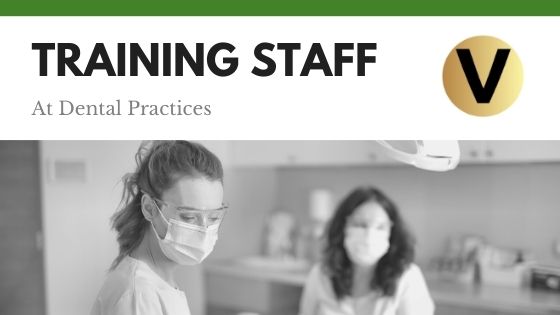Maximizing the earning potential of a dental practice requires a lot of hard work. But there are also times when it’s important to work smarter, not harder. Support staff can be a big driver for a dental practice’s success. Offering comprehensive training to support staff is one way to help take a practice to the next level. Statistics show that by making a few changes, it’s possible to increase revenues. Providing training can also help improve employee satisfaction.
Firstly, it’s a good idea to systematize processes. This makes training go more smoothly and can improve organization throughout the business. New administrative employees should be instructed to perform a series of steps. Having a formal process and breaking it down makes it easier for employees to learn how office processes work. Using steps and a checklist creates a system where it’s more possible to determine where a patient’s file is should it be misplaced.
Secondly, it’s a good idea to hold trainings for the whole team. Create an incentive by buying breakfast or lunch for the whole team. Group trainings allow people to get the benefit of hearing each other’s questions. They also make it possible to observe the team and their dynamics and be aware of any trouble brewing. Training days can be particularly beneficial when a practice is implementing new software or hardware that everyone will need to get comfortable using.
Formalizing job descriptions and duties is a wonderful way to set expectations with employees. Regular performance reviews create a time and place to discuss potential career pathways, raises and other significant issues with the office staff. During performance reviews, the tone should be positive. In addition to offering constructive criticism for employees, ask what they would change at the office. Give them a chance to really have some input in the business.
Finally, many successful dental practices rely on scripts for administrative and support staff. It’s easier to exceed patients’ expectations when a tone for professionalism and courtesy has been set. In devising scripts, research what other businesses and practices do. Teach employees to be tactful and personable. Encourage the use of easily understandable expressions, rather than complex jargon that can be alienating to people who don’t work in medicine.

